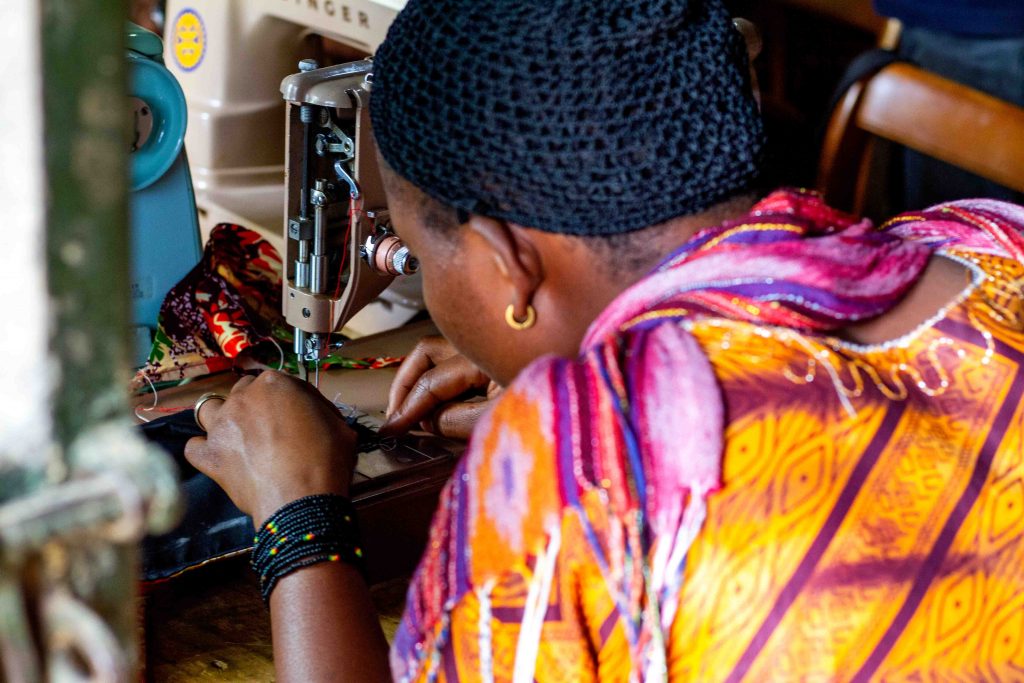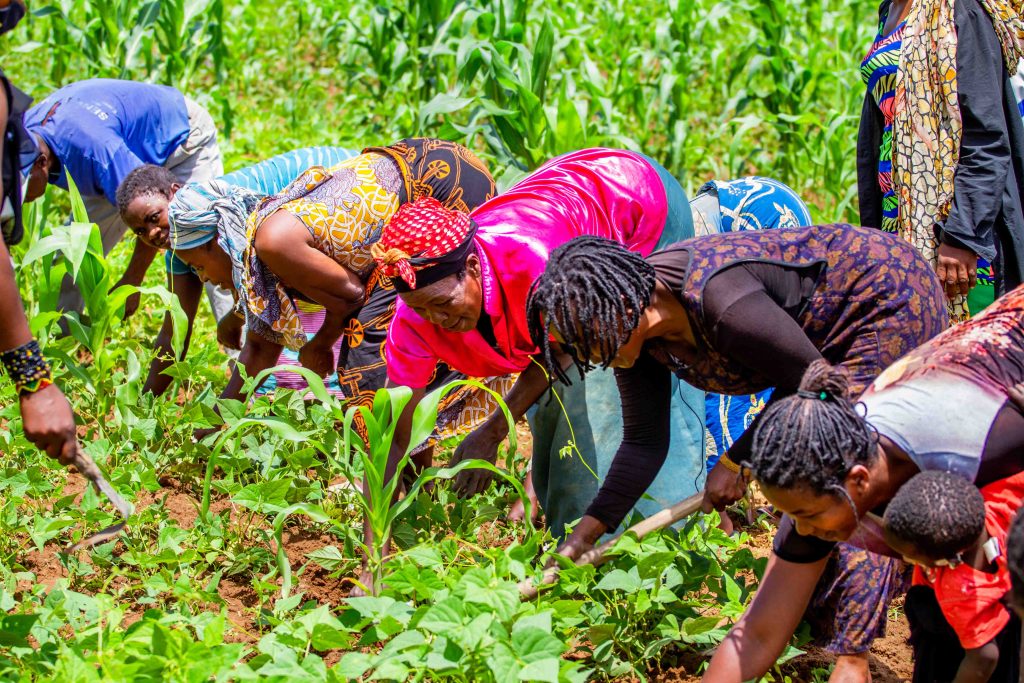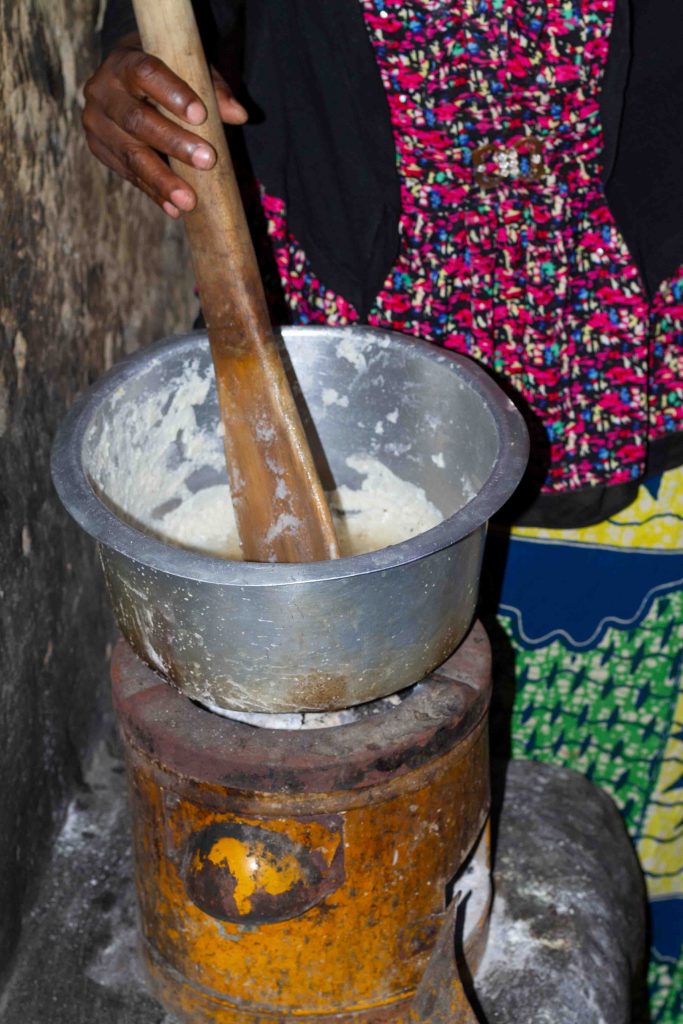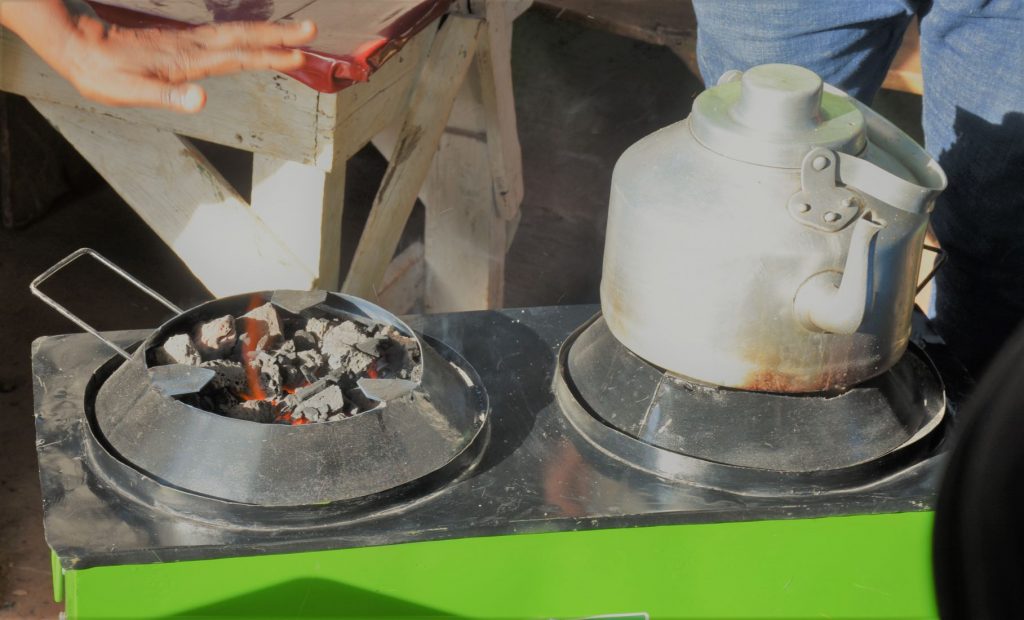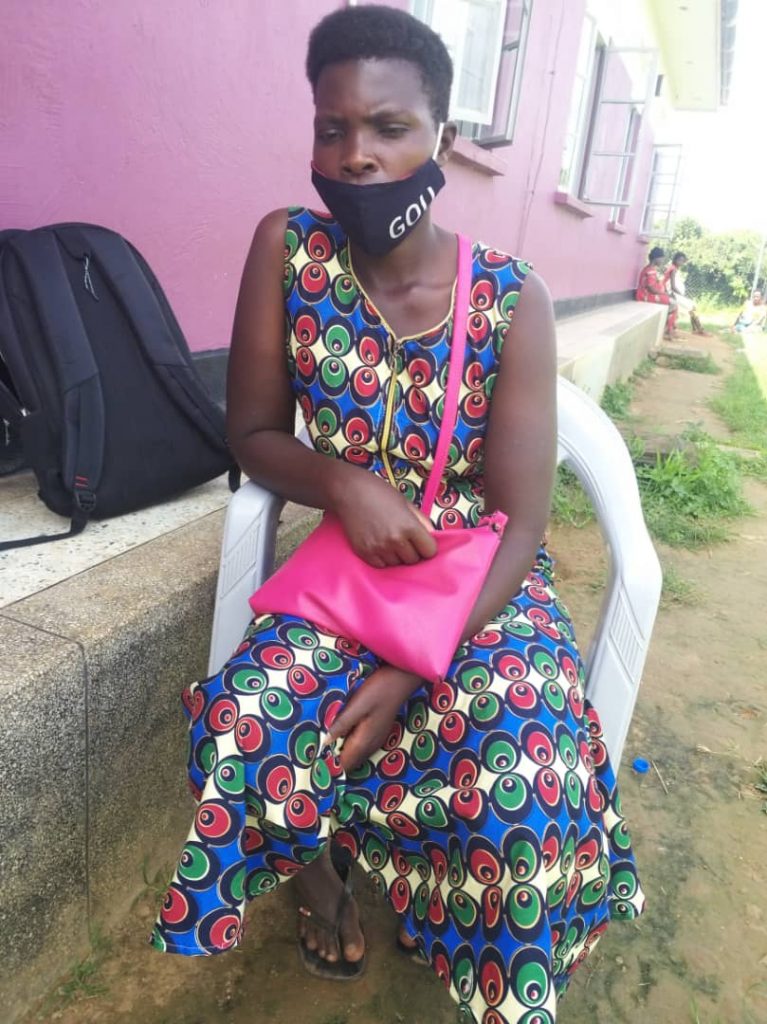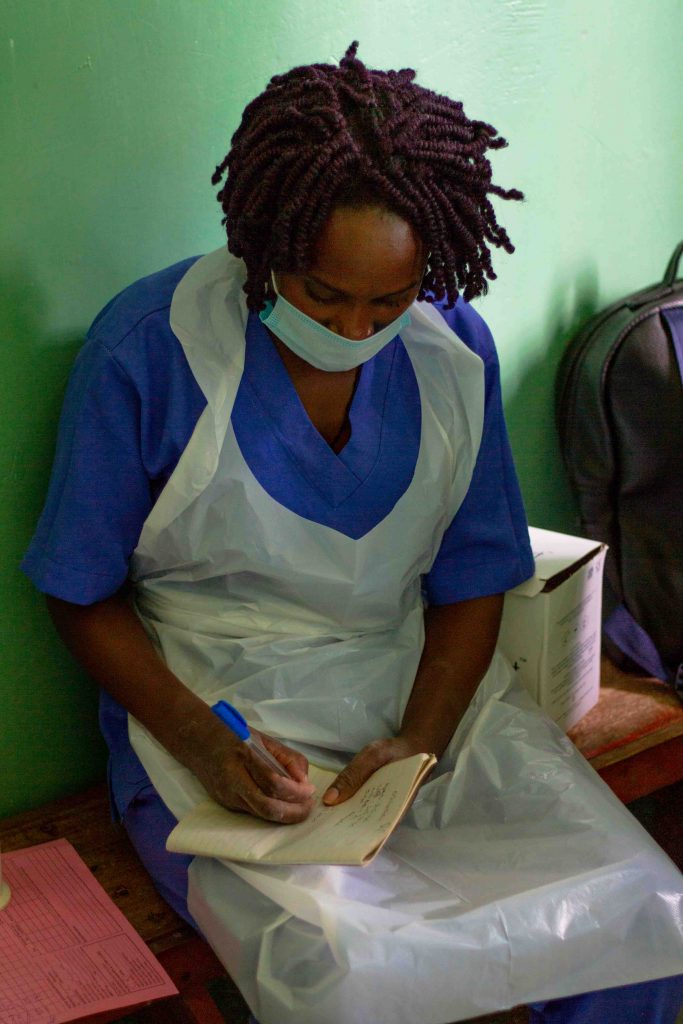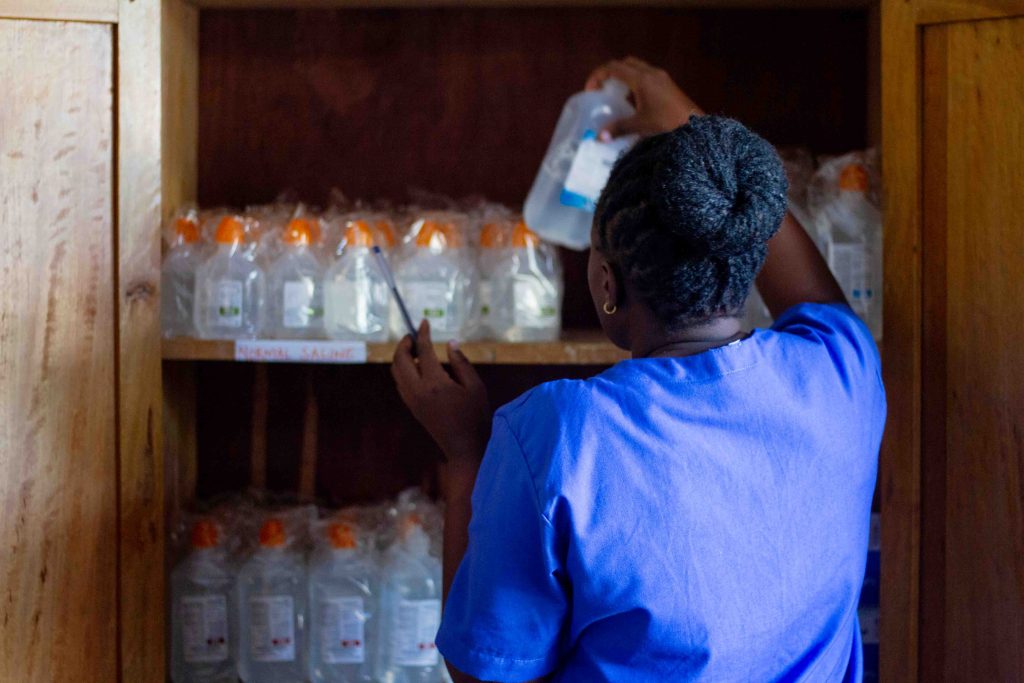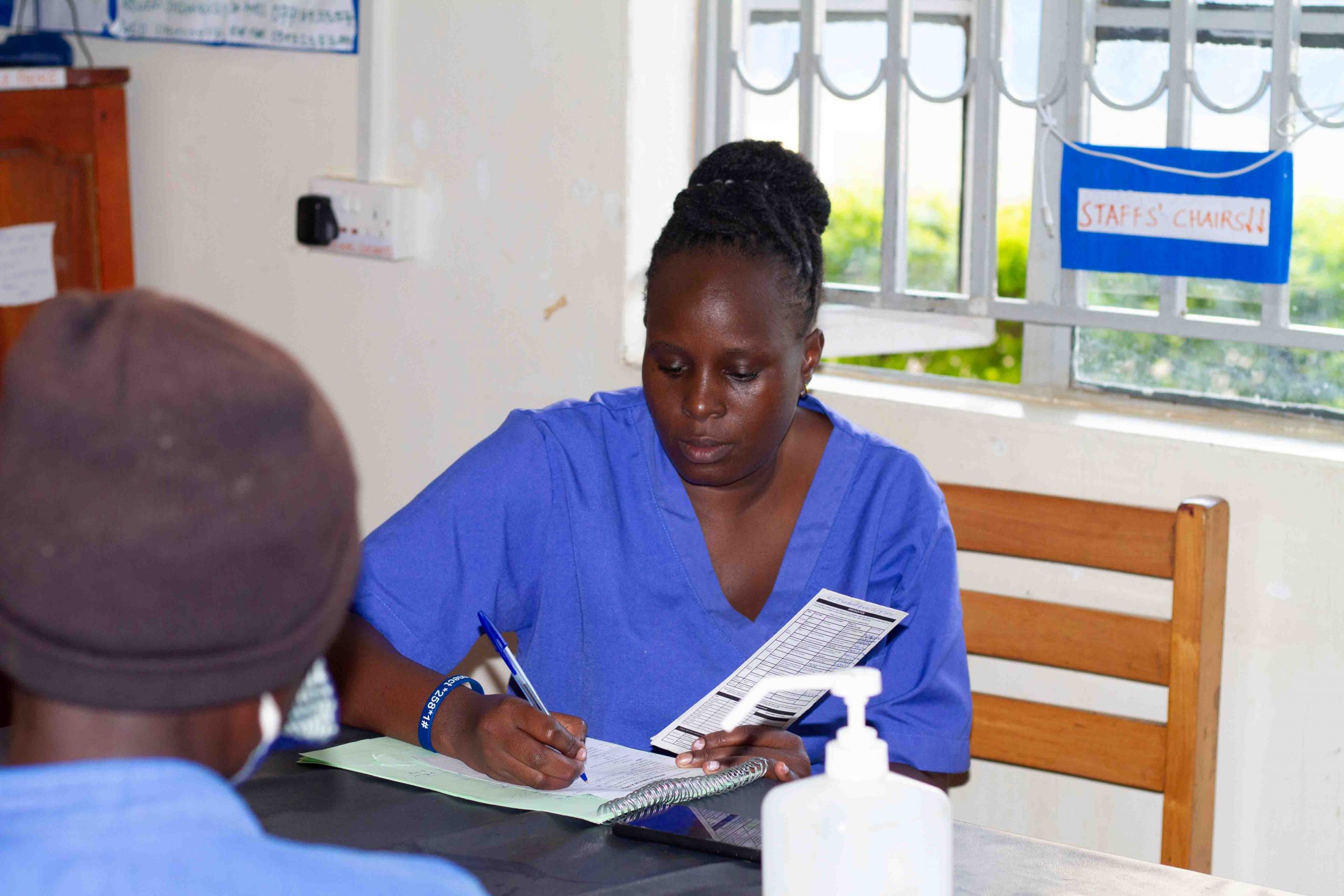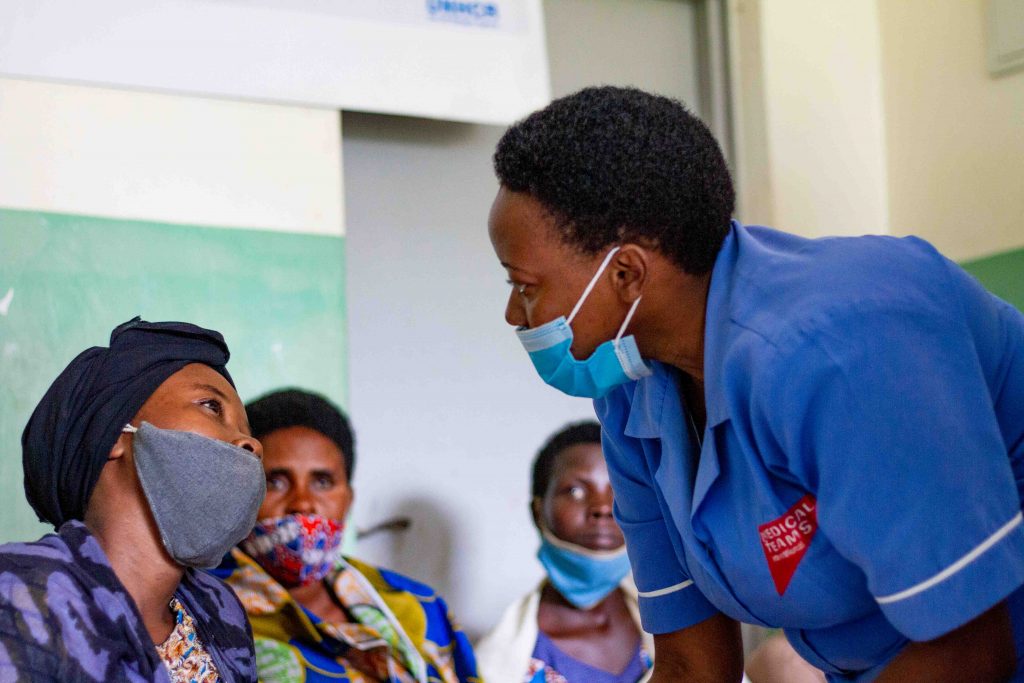Earning Income from Garment Making
Earning Income from Garment Making | Vocational Training
Shared Action Africa equipped 50 refugee women and girls in Nakivale Refugee Settlement with business skills and financial literacy, customer care, marketing, records keeping as well as tailoring skills.
38-year-old Bijou Shala a participant was able to set up a tailoring business after the training from which she an average daily income of UGX 26,000.
“On completing this course, I purchased a sewing machine using my savings of UGX 600,000. I set up a workshop at my home to reduce the walking distance as well as rent fees. I am able to sew women’s clothes and shorts for males using African fabrics from DRC and Tanzania which I get cheaply. I also do one off jobs such as repairing torn clothes.
I also get to teach people especially the young girls how to sew. I believe it is important for young refugee girls to have a skill that they can use to attain income anywhere they go. I have trained five girls and 3 older women in making dresses and making cloth repairs.
I feel so proud being able to take care of my family of five. Though our needs are still many, I am able to meet the critical or basic needs. Moreover, having a certificate from the training makes me happy and I feel a sense of accomplishment. Before the training, I did petty business of selling small items like sweets which earned very little in that in day I could get only UGX 3,000 on average.
My business needs more capital to grow as I want to get more fabrics and expand my space to reach more clients as well as provide trainings to more people at a small cost. I also want to use social media to market my products.
I am respected in my community by both men and women because they see the positive change I am contributing to.
Thank you, Shared Action Africa, for changing my life.”

